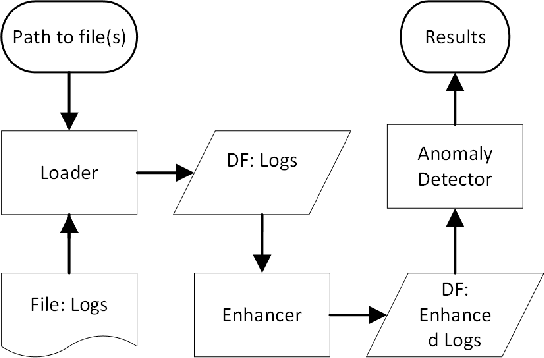Jesse Nyyssölä
Few-Shot Cross-System Anomaly Trace Classification for Microservice-based systems
Mar 31, 2024Abstract:Microservice-based systems (MSS) may experience failures in various fault categories due to their complex and dynamic nature. To effectively handle failures, AIOps tools utilize trace-based anomaly detection and root cause analysis. In this paper, we propose a novel framework for few-shot abnormal trace classification for MSS. Our framework comprises two main components: (1) Multi-Head Attention Autoencoder for constructing system-specific trace representations, which enables (2) Transformer Encoder-based Model-Agnostic Meta-Learning to perform effective and efficient few-shot learning for abnormal trace classification. The proposed framework is evaluated on two representative MSS, Trainticket and OnlineBoutique, with open datasets. The results show that our framework can adapt the learned knowledge to classify new, unseen abnormal traces of novel fault categories both within the same system it was initially trained on and even in the different MSS. Within the same MSS, our framework achieves an average accuracy of 93.26\% and 85.2\% across 50 meta-testing tasks for Trainticket and OnlineBoutique, respectively, when provided with 10 instances for each task. In a cross-system context, our framework gets an average accuracy of 92.19\% and 84.77\% for the same meta-testing tasks of the respective system, also with 10 instances provided for each task. Our work demonstrates the applicability of achieving few-shot abnormal trace classification for MSS and shows how it can enable cross-system adaptability. This opens an avenue for building more generalized AIOps tools that require less system-specific data labeling for anomaly detection and root cause analysis.
LogLead -- Fast and Integrated Log Loader, Enhancer, and Anomaly Detector
Nov 20, 2023



Abstract:This paper introduces LogLead, a tool designed for efficient log analysis. LogLead combines three essential steps in log processing: loading, enhancing, and anomaly detection. The tool leverages Polars, a high-speed DataFrame library. We currently have 7 Loaders out of which 4 is for public data sets (HDFS, Hadoop, BGL, and Thunderbird). We have multiple enhancers with three parsers (Drain, Spell, LenMa), Bert embedding creation and other log representation techniques like bag-of-words. LogLead integrates to 5 supervised and 4 unsupervised machine learning algorithms for anomaly detection from SKLearn. By integrating diverse datasets, log representation methods and anomaly detectors, LogLead facilitates comprehensive benchmarking in log analysis research. We demonstrate that log loading from raw file to dataframe is over 10x faster with LogLead is compared to past solutions. We demonstrate roughly 2x improvement in Drain parsing speed by off-loading log message normalization to LogLead. We demonstrate a brief benchmarking on HDFS suggesting that log representations beyond bag-of-words provide limited benefits. Screencast demonstrating the tool: https://youtu.be/8stdbtTfJVo
 Add to Chrome
Add to Chrome Add to Firefox
Add to Firefox Add to Edge
Add to Edge